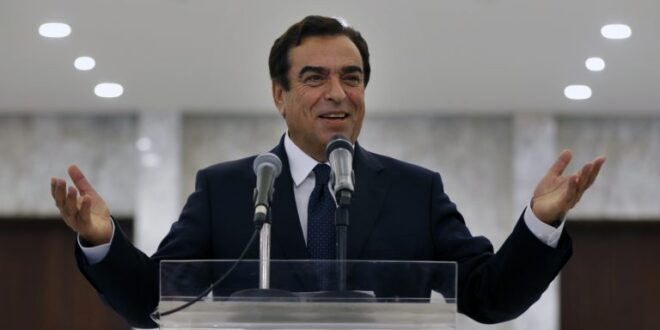In its latest spat with yet another country in the Middle East, Saudi Arabia recently recalled its ambassador to Lebanon and banned Lebanese imports.
At times, Lebanon has been caught in the middle of the regional competition between Saudi Arabia and Iran.
Under the leadership of Crown Prince Mohammed Bin Salman, Saudi Arabia has a recent history of attempting to bully and intimidate Lebanon.
Riyadh envisions itself as a leading power in the Middle East, yet its penchant for overreacting belies an insecure leader uncertain of his own standing in the region.
In its latest spat with yet another country in the Middle East, Saudi Arabia recently recalled its ambassador to Lebanon and banned Lebanese imports. The move was in apparent retribution for critical comments a Lebanese minister made about Saudi Arabia’s intervention in Yemen. George Kurdahi, Lebanon’s Information Minister, called the war futile and described the state of aggression to which Yemen fell victim, while also saying that the Houthis are merely defending themselves. The comments, which were made in early August, circulated online in late October. The United Arab Emirates, Bahrain, and Kuwait also made statements critical of Kurdahi’s comments, and each expelled the Lebanese ambassadors in their respective countries and recalled their respective envoys. The diplomatic disagreement will further compound Lebanon’s already drastic economic struggles and has led to widening political discord within Lebanon’s current government. Prime Minister Najib Mikati has called upon Kurdahi to resign, though to date the latter has refused.
At times, Lebanon has been caught in the middle of the regional competition between Saudi Arabia and Iran. The government in Beirut has attempted to maintain good relations with Gulf countries, which provide an economic lifeline via trade and investment, as well as act as a purchaser of Lebanese goods, including jewelry and agricultural produce. Saudi Arabia has previously accused Hezbollah of smuggling an amphetamine called Captagon through shipments of Lebanese fruits, and accordingly, banned the importation of fruits and vegetables back in May, although the ban was temporary. Over 350,000 Lebanese citizens also work in Gulf Arab states, providing a crucial source of remittances. Yet, at the same time, through its relationship with Hezbollah, Iran maintains significant influence within Lebanon. Although Riyadh and Tehran have held several rounds of direct talks on Yemen this year, there has reportedly been little tangible progress.
Under the leadership of Crown Prince Mohammed Bin Salman, Saudi Arabia has a recent history of attempting to bully and intimidate Lebanon. In 2017, Lebanon’s then-Prime Minister Saad al-Hariri was held hostage in Saudi Arabia and coerced into resigning. The move was an attempt to curtail the influence of Hezbollah in Lebanon. Like several other geopolitical gambits engineered by the Crown Prince, known as “MBS,” including the ill-fated and counterproductive blockade of Qatar, the strongarm move failed to achieve its ultimate objective and instead amounted to yet another clumsy move by Saudi Arabia. Guided by impulse and emotion, rather than strategy and objectives, MBS has been criticized as all flash, with little actual substance behind his ideas of reforming the Kingdom and refashioning its image. Moreover, MBS’ role in ordering the murder of Washington Post columnist Jamal Khashoggi has eliminated the façade of such a benevolent philosophy, additionally demonstrating an erratic decision-making process in foreign policy and international affairs.
Riyadh envisions itself as a leading power in the Middle East. Yet, its penchant for overreacting belies an insecure leader uncertain of his own standing in the region. Saudi Arabia remains incredibly sensitive to criticism of its abhorrent human rights record, to include its targeting of dissidents abroad and its disastrous war in Yemen, which has devastated one of the world’s poorest countries. Under bin Salman, the Saudis have also attempted to strongarm countries outside of the Middle East, including Canada, after a tweet by Global Affairs Canada, the department that heads diplomacy and trade, that urged the government in Riyadh to release detained women’s rights activists. If Saudi Arabia is ever to come close to fulfilling its goal of becoming a regional hegemon, Riyadh needs to be more cognizant of opportunities for dialogue, and less reactionary in its use of aggressive tactics, which has only served to alienate other countries in the region and globally.
 Eurasia Press & News
Eurasia Press & News




